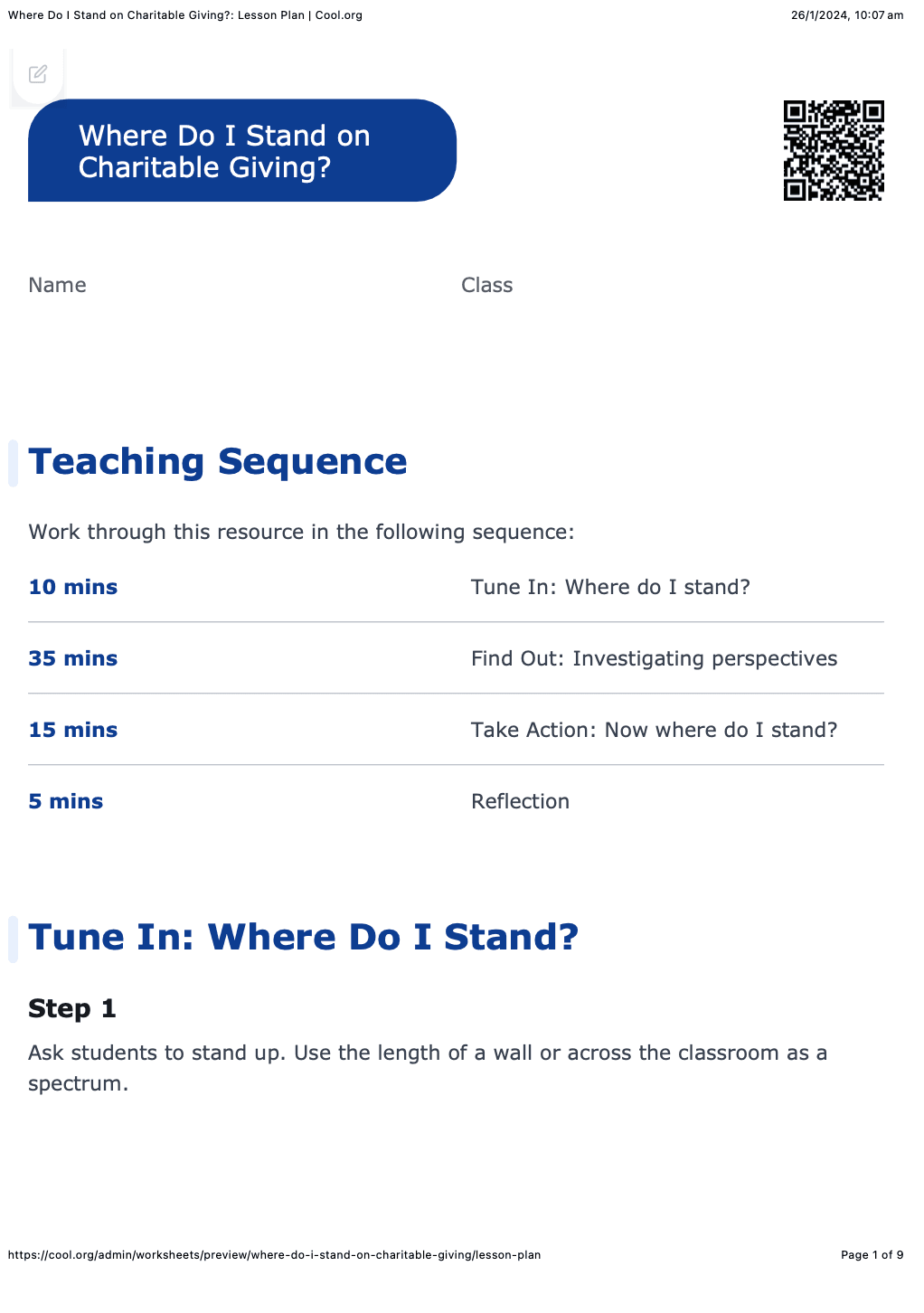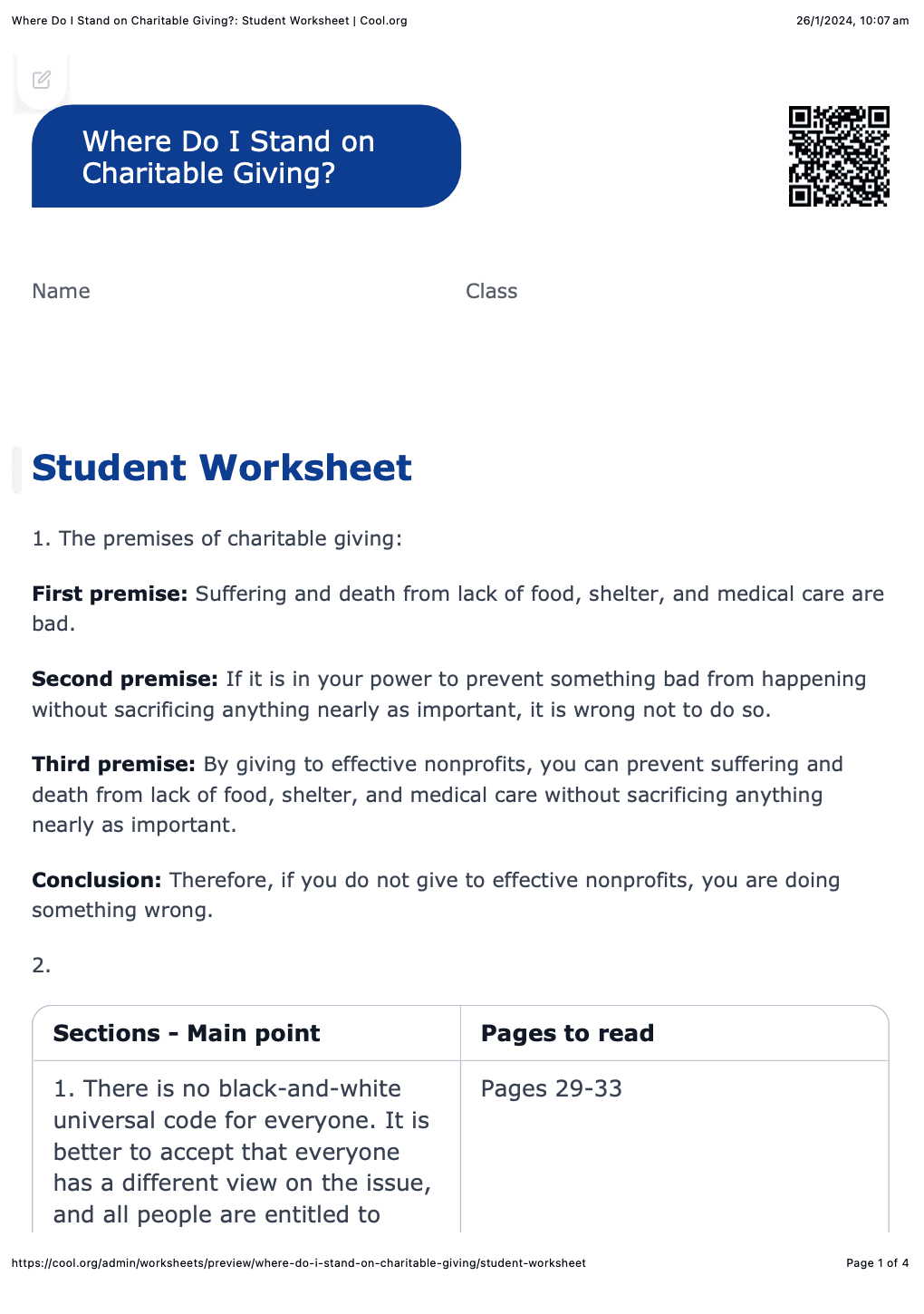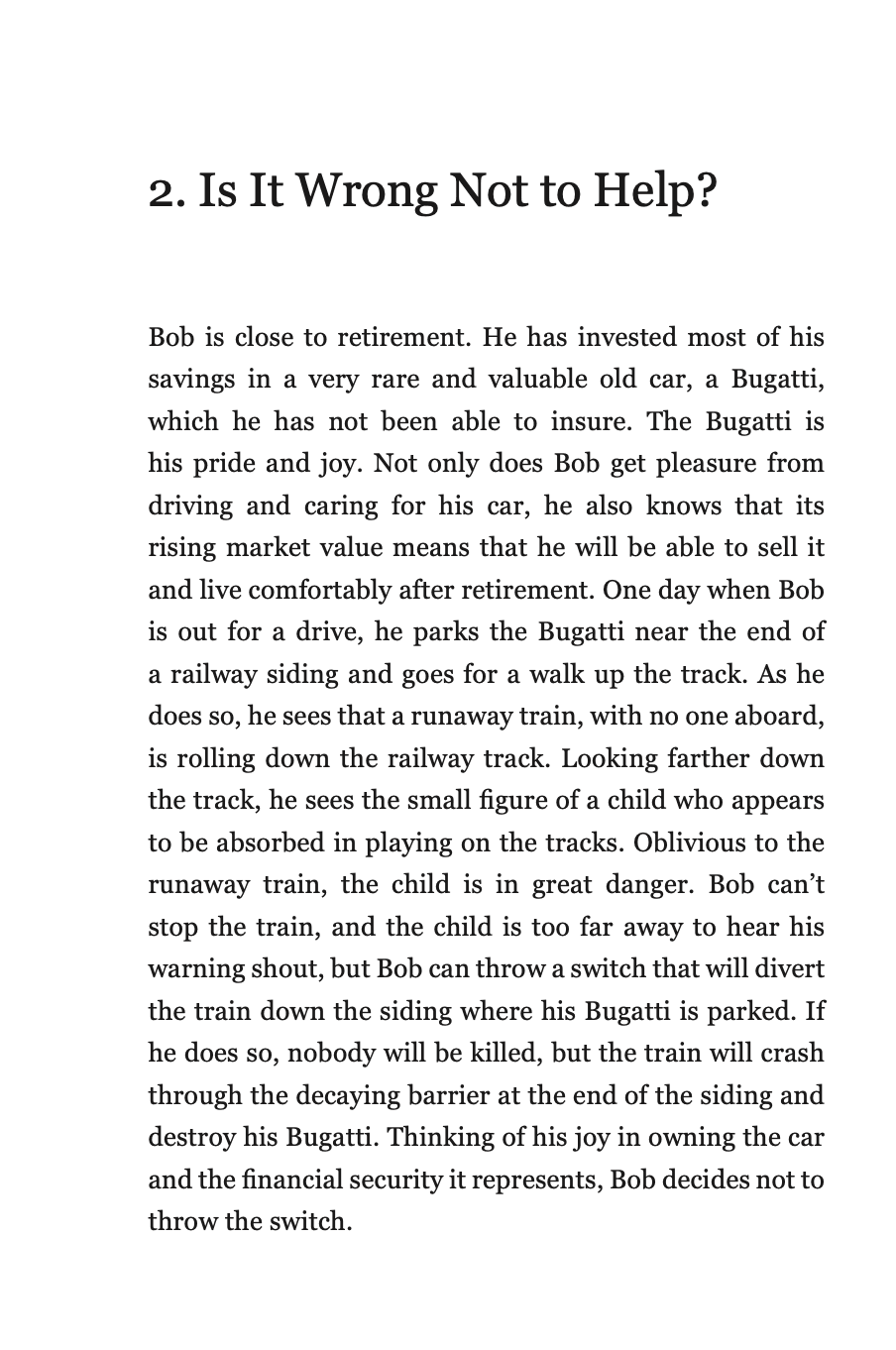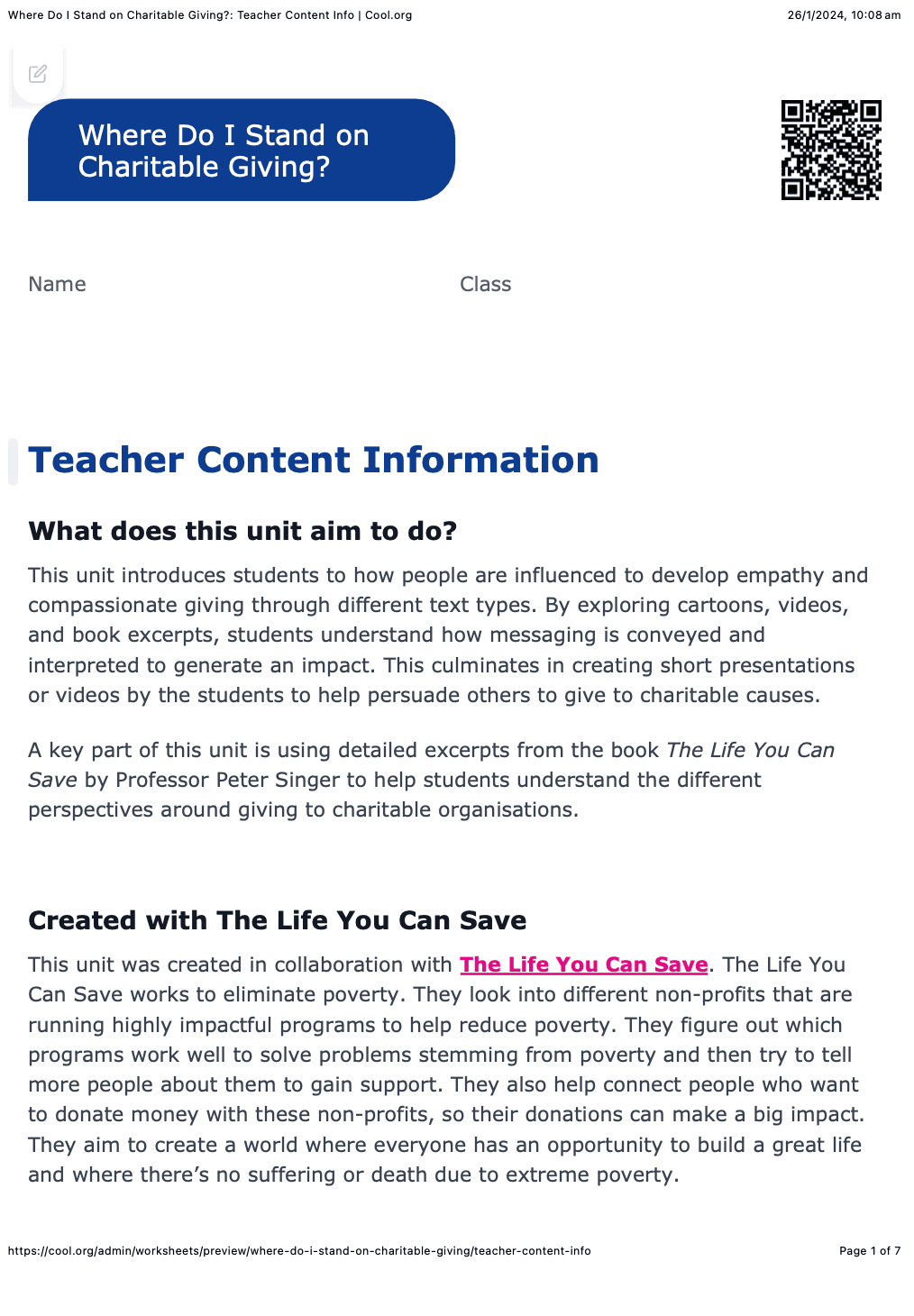
Where Do I Stand on Charitable Giving?
Lesson2 of 3 in this unit
SecondaryYear 10EnglishText AnalysisHumanities and Social SciencesSocialHuman RightsSocial ActionSocial and Emotional Learning
Summary
Lesson Guides and Printables
Lesson Plan

Student Worksheet

Chapter 2 & 3 The Life You Can Save

Teacher Content Info
